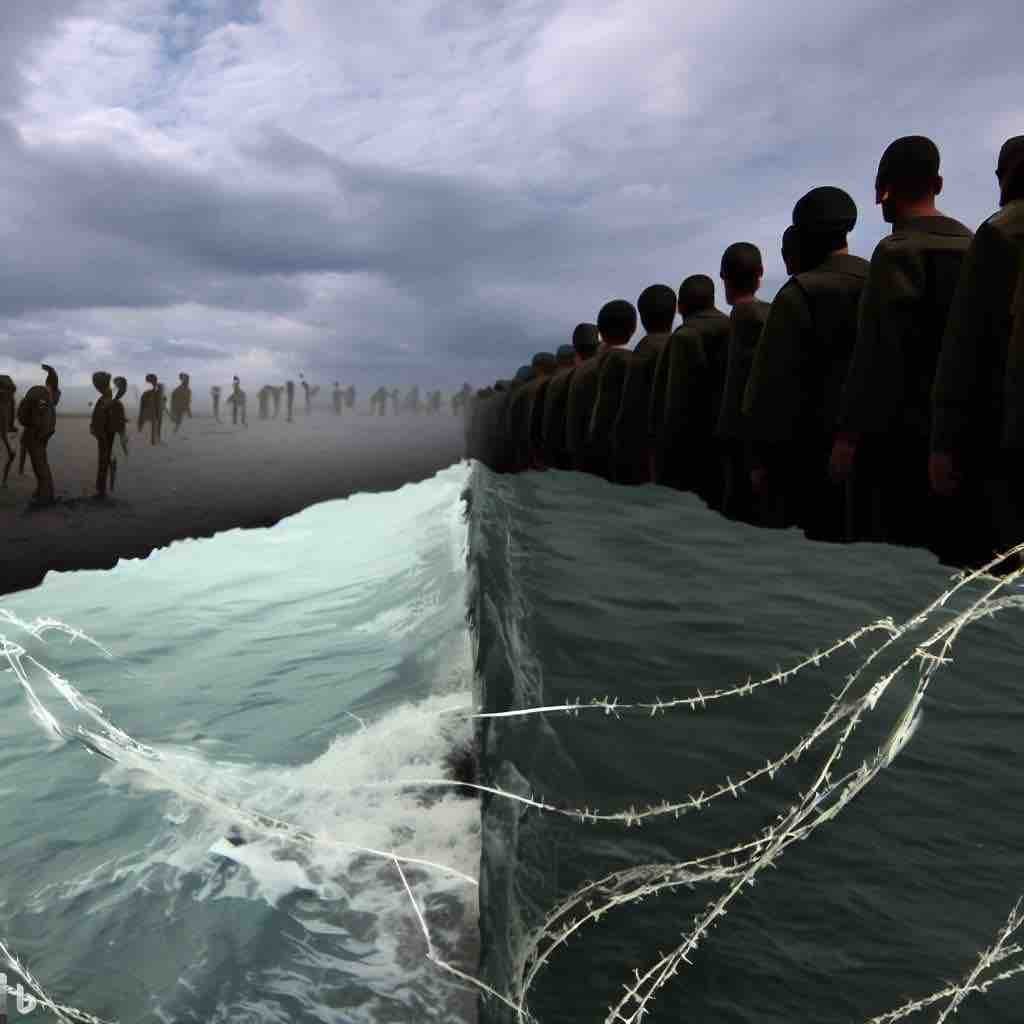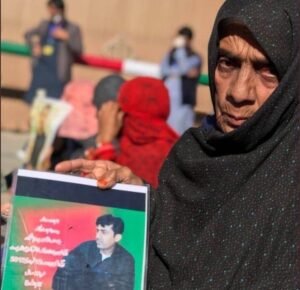Water Disputes and Security Concerns: Iran-Afghanistan Relations under Strain

@Microsoft Bing
By SS Ahmad
The relationship between Iran and Afghanistan has been a significant and complex one, marked by a long history, cultural connections, and geopolitical considerations. In recent times, the evolving dynamics between the two countries have been more tense than friendly.
Iran and Afghanistan share deep historical and cultural ties that span centuries. The presence of a large diaspora on both sides of the border further strengthens these connections. Over the years, Iranians cautiously welcomed the Taliban government in Afghanistan, observing the diplomatic attitude of the regime. Tehran engaged with the Taliban government to closely monitor the unfolding scenario, despite reservations about a Sunni extremist group consolidating power next door. Iran’s approach towards the Taliban can be categorized as sceptically cooperative, as they expressed concerns about the possible rise of the Islamic State in Afghanistan.
In January of this year, a delegation from Afghanistan led by Taliban Foreign Minister Amir Khan Muttaqi visited Iran, signalling a potential shift in diplomatic relations. During these meetings, Iran facilitated discussions between the Taliban and opposition leaders in Iran, aiming to foster internal reconciliation and inclusivity in governance. Iran’s facilitation of such a meeting appeared to be an attempt to improve diplomatic ties, although scepticism regarding the Taliban’s promises and actions remained.
However, tensions escalated in May when deadly border clashes between Taliban and Iranian border forces occurred. The clashes were a result of the restriction of water flows to Iran, which Iran claimed violated the 1973 treaty granting them rights to the water flows of the Helmand River. Iran categorically accused the Taliban of aggression and reiterated its non-negotiable stance on the water flows issue during a visit to Afghanistan by an Iranian military delegation.
Growing Anti-Afghan Sentiment in Iran
While Iran has been engaging with the Taliban government, there has been a rise in anti-Afghan sentiment within Iran. Recent militant attacks, including the targeting of a shrine in Shiraz, have led some Iranians to voice concerns about the country’s security measures and blame Afghans for these incidents. The attacks have prompted calls for transparent investigations into potential intelligence lapses and security deficiencies. Some Iranians have criticized the government’s priorities, questioning its focus on issues such as enforcing the hijab instead of addressing security concerns.
The presence of Afghan refugees in Iran has also fuelled anti-Afghan sentiment. There are concerns about radicalization among Afghan refugees, with estimates suggesting their numbers to be around five million. Critics of Afghan immigration argue that the influx of Afghans, coupled with cultural differences and potential radical beliefs, poses a significant security threat to Iranian society.
Iran’s Concerns and Response
Iran has expressed concerns about the possible recruitment of secret elements from the Afghan community in Iran by the Taliban. This has further heightened sensitivities and deepened worries about the radicalization of Iranian society. Iranian activists have highlighted the need to address the potential cultural infiltration and its impact on the second generation of Afghan settlements.
In response to these concerns, Iran has imposed restrictions on Afghans, including banning them from entering certain provinces and denying them access to specific areas. Reports suggest that Afghans have also faced limitations on employment opportunities, with authorities banning them from working in stores in certain cities. These restrictions have added to the tensions between Iran and Afghanistan, exacerbating the already complex dynamic of their relationship.
One of the major points of contention between Iran and Afghanistan has been the issue of water rights. Iran has accused the Taliban of restricting the flow of water from the Helmand River, violating the 1973 Helmand River Treaty. This has led to shortages of water in Iran’s Sistan and Baluchestan provinces. In May, border clashes occurred between Iranian and Taliban forces in the region, resulting in casualties on both sides.
Iran has been vocal about its rights to a portion of water from the Helmand River, warning the Taliban of consequences if Iran’s citizens’ rights are violated. The water dispute has further strained the relationship between Iran and Afghanistan, with both sides trading threats and accusations.
Taliban’s imposition of restrictions on religious and cultural practices, particularly targeting the Shi’a minority, has sparked outrage. The Taliban has prevented Afghan Shi’a from marking important religious holidays and banned the teaching of Shi’a jurisprudence in universities.
Iran has called for an inclusive government in Afghanistan, emphasizing the importance of cooperation among all parties within the country to promote stability, security, and the welfare of the Afghan people. While Iran has refrained from formally recognizing the Taliban-led government, it has allowed Taliban representatives to manage the Afghan embassy in Tehran and maintained its diplomatic presence in Afghanistan.
The closure of the offices of the Imam Khomeini Relief Committee, a prominent charity linked closely with the Iranian government, by the Taliban adds another layer of complexity to Iran-Afghanistan relations. The move is seen as an attempt by the Taliban to curb Iran’s influence in Afghanistan, particularly in the realm of promoting its conservative brand of Shi’a Islam. Tensions between the Taliban and Iran, exacerbated by the water dispute, have led to tit-for-tat actions and the potential for further targeting of Iranian organizations and activities in Afghanistan.
As the relationship between Iran and Afghanistan continues to evolve, it is crucial to find a balance between cooperation and addressing concerns. Both countries have historical and cultural ties that can be harnessed for mutual benefit. However, the presence of security threats, anti-Afghan sentiment, and conflicts over resources pose significant challenges. Resolving these issues will require diplomatic efforts, dialogue, and a commitment to fostering stability and inclusivity in the region.
SS Ahmad is a freelance researcher and journalist based in Afghanistan.
Note: The contents of the article are of sole responsibility of the author. Afghan Diaspora Network will not be responsible for any inaccurate or incorrect statement in the articles.










